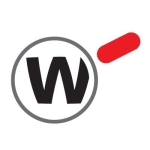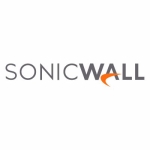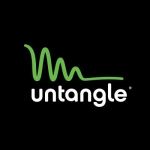What is our primary use case?
Cisco has a new general firewall: the Firepower NGFW. If you take a look at the Cisco Firepower product line, they have three models available:
- A low-scale model: the 2000 series
- A high-end model: the 4000 series
- The carrier-grade model: the 9000 series
We have already used the 4000 and 2000 series over here. We've been using this solution in Bangladesh for some customers over the last eight months.
We've been using FPR 2110, 2120, 2130, & 2140. We also employ the FPR 4130 and 4140. We have been using this equipment on our last few projects. We used it as a transfer and for firewalling. The most recent one we are using for firewall support as well.
How has it helped my organization?
I have a two-part business. First, we provide solution services as a vendor for multiple customers working as a consulting firm. I'm providing multiple customers with support on-premises for Cisco products right now.
We are not able to use these products internally in our company. The second part of the business is my status or core business which is basically operating as a software solution provider.
I have personally engineered these Cisco firewall solutions for clients. When we implemented it, it was easy. We have to maintain high-end abilities in order to ensure the availability of high-end support for the clients. I generally have to look at everything. Later on, we were able to upgrade the Cisco Firepower NGFW easily. We were able to connect from the beginning to implement the complete number of files in the system.
What is most valuable?
Cisco Firepower NGFW is really easy to use right now to determine when my file requires a shift from primary to secondary status, and it can be done with automation. Earlier we used to do this with patching.
I would say the Cisco Firepower NGFW actually gives superior intelligent behavior to transfer its active/passive infrastructure. Overall, Cisco Firepower NGFW has been a good power element in our systems due to its central location.
What needs improvement?
I would say when Cisco is selling something called a firewall, they put a lot of services together to make a single box solution. When a company develops a firewall, they need to develop certain features like intrusion control and offer it pre-loaded in the product.
On the mix of projects that I am responsible for, I feel comfortable using the Cisco firewall for management. One feature lacking is superior anti-virus protection, which must be added.
I have to say I am very proud of the Cisco Firepower 41400 as it can give you multiple layers of four-degree connectivity in operations.
We do not use the Cisco 9000, but even the lower level firewalls are pretty expensive, considering the features and software included.
In summary, we would like Cisco to provide more features inside regarding network trafficking forecasting. Ideally, the belief is that this would add an immediate resolution.
For how long have I used the solution?
Less than one year.
What do I think about the stability of the solution?
So far we haven't encountered any stability problems. You should have a lot of patches to apply to update the firmware. You can understand the firewall in less than a week.
We had some fraud introduced with our last box when Cisco produced an upgrade. The updated policy agreement was based on the wrong purchase date information.
The faster integration that is available in our region is pretty smooth for the Cisco firewall right now. I haven't found that much of a limitation to any service.
I used to have a lot of issues with firewall support. Now, I keep a good state of mind with Cisco. I can expect my capabilities going out of range eventually if we don't upgrade.
Cisco has its own cloud platform. I am able to see a single dashboard with all of my firewall activities and network performance under diagnostics, which is really helping us out.
What do I think about the scalability of the solution?
I would put the Cisco Firepower NGFW firewall into Transport mode, as you can do with most firewall systems for scalability. We used to have about 60% of our users on hold during six-week events. We still have certain problems without a firewall, but these days with the Cisco Firepower, we have over 80% of the load working.
As the customer integrator for enterprise contracts, we've been able to introduce Cisco Firepower to around 10 of our new customers in Bangladesh. At least 50 of the previous Cisco customers are still using the firewall solution right now under our support.
These are enterprise customers who require Cisco firewall support. We used to have a specialty in that which is really like the holy grail in rocket science. It used to be like that but now with Cisco's enterprise user base, we offer operational system support to reduce complexity a lot. It's really easy. It's not like you have to be a specialist.
How are customer service and technical support?
In Bangladesh, we had a little issue with Cisco technical support. We run our own sidebar operations, so I am not so satisfied with Cisco customer support.
Cisco Firepower devices have created a lot of differences with due dates over our service contract. Consequently, we don't really bother anymore with Cisco technical support. Bangladesh has a really good tech scene. That is the reason we are not that concerned about Cisco product support anymore. It's okay. We handle it our own.
Which solution did I use previously and why did I switch?
We previously used Cisco ASA as a firewall.
How was the initial setup?
The setup with the Cisco Firepower NGFW is very easy. I have used other networking and firewall equipment previously, including Juniper. I've implemented other solutions and those were really tricky compared to Cisco.
The Cisco firewall system has eliminated all our network setup problems. Earlier when we used other products for firewalls, it was very complex to set up. Cisco firewalls from the beginning have eliminated all of the difficult parts of the initial deployment.
All you have to do is pull your management together and communicate to your team to follow the documentation provided by Cisco. Altogether, it is easy for our team to install the Cisco firewall products.
What about the implementation team?
I did the installation myself and it took 48-50 hours, approximately, in the Transfer mode. We had a further two-hour window of augmenting and transforming the data. We were able to do that successfully. Eventually, we were able to transform the entire network setup.
What's my experience with pricing, setup cost, and licensing?
The license in my country is available to subscribe for three years or one year. We wanted to go with the solutions for embedding a two-year subscription, but this was not possible.
The Cisco licensing agreement in Bangladesh is different than the one in India and in Dubai. It is not a problem, but if you want to subscribe to the yearly subscription, the original cost is really high. Also, if you go for an anti-virus, you pay for an additional yearly subscription.
When we push customers to implement Cisco solutions, they can manage the subscription cost of Cisco internally to access these important solutions long term. Our clients have been able to secure surprisingly efficient service with the Cisco Firepower NGFW firewall solution.
Which other solutions did I evaluate?
This fall, we evaluated firewall equipment from Juniper Networks. This is a limitation for Cisco, as their pricing is too high. The fact is when I need to install and manage an enterprise network, Cisco has the capability of having support for the IC Treadway standards. Furthermore, I can actually manage my entire enterprise network in one dashboard.
If I bring in tech from the outside, like Palo Alto Networks equipment, that won't be able to integrate with my regular Cisco environment.
With Cisco devices, it was easier for me to grab the assets required on the network for installation. With other solutions providers, good luck managing that with any ease.
What other advice do I have?
In my opinion, I would rather ask everyone to have a simple network. If you need multiple networking lines, like for the Cisco ASA or the Firepower NGFW, make sure you have ample tech support.
There are many issues with connectivity in firewall systems, but Cisco quality is good. The connectivity of your network can really reduce your complexity over firewalls.
I would suggest if you want to configure a complicated network scenario, go for a next-generation firewall. I would also suggest making your firewall options go to Cisco as they have some influential products right now.
Once you are pushing the Cisco firewall, you'll be able to actually monitor and confirm each and every traffic coming in or going out of your network.
Palo Alto Networks or Juniper Networks firewalls are ideal, slightly better than Cisco. They are not as easy as Cisco to use right now, but considering the cost and everything else, Juniper Networks equipment is really good.
The fact is you need to consider just what you're achieving when you put in Cisco firewalls and implement Cisco routers. For those on the verge of a new purchase, I would say that going for an expired model of firewall is definitely a good buy.
I would rate the Cisco Firepower NGFW with an eight out of ten points.
Disclosure: I am a real user, and this review is based on my own experience and opinions.














